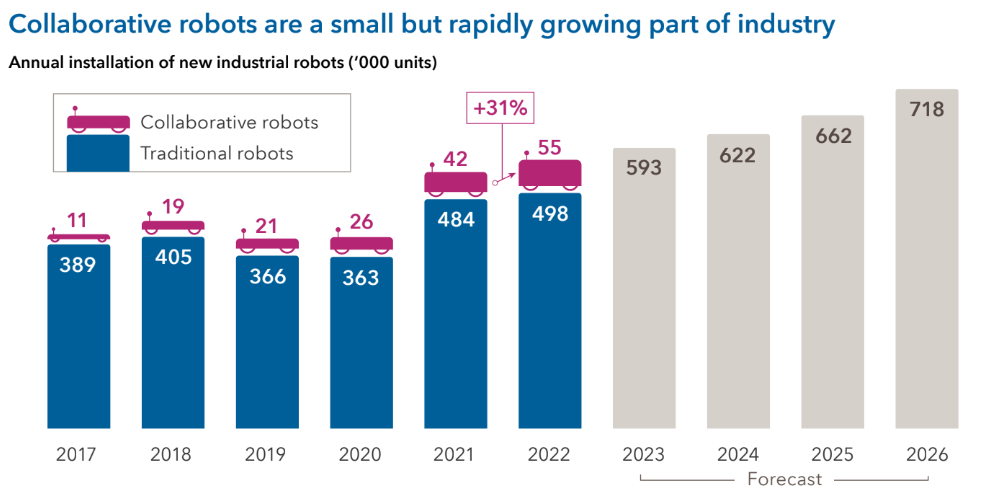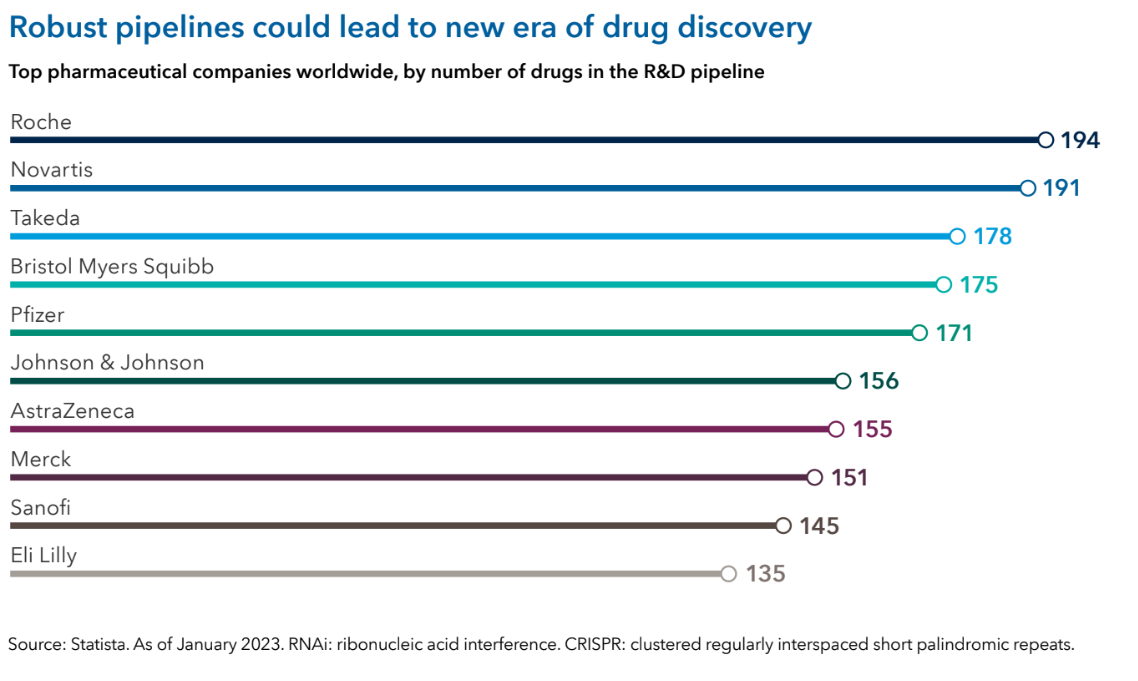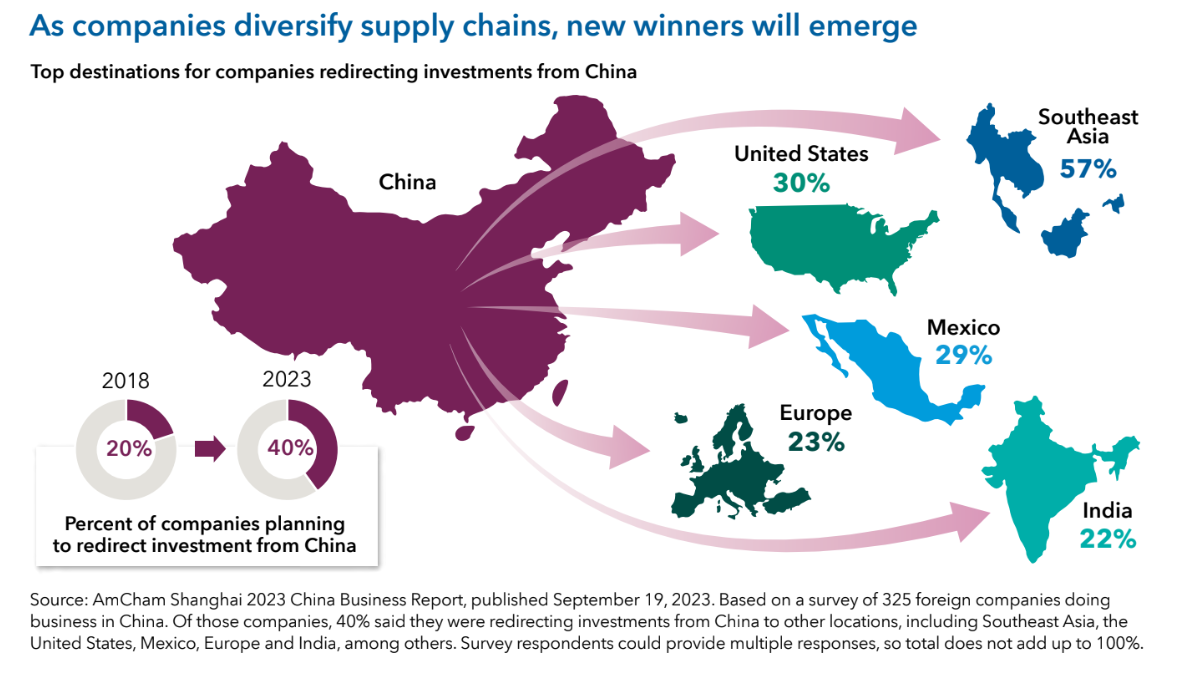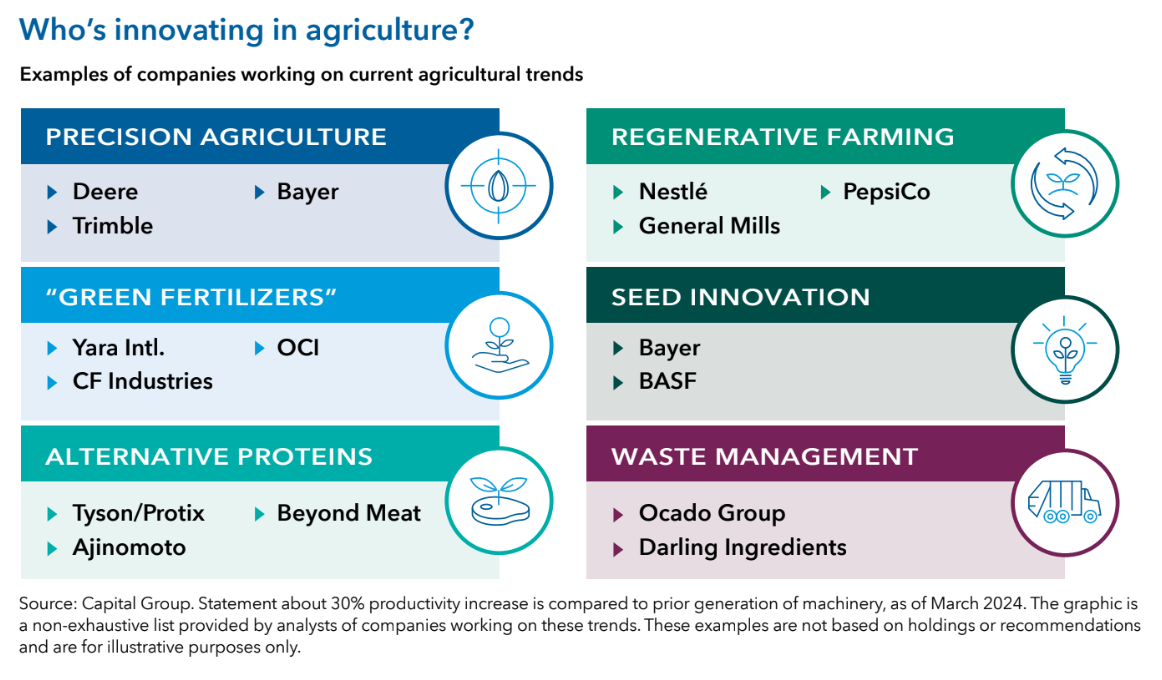Innovation is a key driver of success for companies as rapid change upends business models throughout the world. In this report, we explore four trends that have captured the attention of our investment teams. Each has the potential to transform multiple industries and create new opportunities for investors.
It’s easy to get distracted by the latest headlines or short-term stock movements. Taking a long-term perspective can help investors stay ahead of the curve and potentially benefit from these megatrends as they grow and develop over time.
The Future of Tech
“AI revolution will reshape many industries”
Artificial intelligence has captured the imaginations of investors in tech companies, but the use of AI will extend well beyond generative
chatbots and have lasting impacts across many industries. As interesting as I find large language models like ChatGPT, I suspect AI-powered robots could have an even bigger economic impact over the next decade — with their applications used everywhere from homes to factories to hospitals.
For example, when Amazon started working on robots to pick items and put them in shipping boxes, failure rates were high, and successful picks took up to two minutes each. Seven years later, the company’s new “Sparrow” robot can pick and pack two-thirds of the 100 million products in a typical Amazon warehouse, needing just seconds for each. Delivery drones and driverless taxis are more visible examples of AI-enabled robots being tested in select cities across the globe. And in health care, companies are pairing AI with robotics to improve the success of surgeries and diagnostics.
Early stock market winners in the field of AI have been concentrated in the tech industry, particularly in sub-sectors like semiconductors, cloud infrastructure, and software. Companies that benefit most from advances in robotics may be spread over a broader set of industries. I want to invest in companies that are at the forefront of using advanced robots to improve client experiences, efficiency, and profitability.

The Future of Healthcare
“Breakthroughs beyond obesity drugs”
While obesity drugs have garnered most of the headlines, we are currently in an era of innovation across the health care landscape. Companies are actively pursuing therapies and technologies to treat — and possibly cure — major diseases and improve people’s lives. One rapidly advancing field is cell therapy, which involves modifying cells outside the body and then infusing them into patients. This approach has gained approval for use against certain blood cancers that previously offered few treatment options. Companies are now developing cell
therapies for diabetes, liver disease, and heart failure.
New gene therapies are also providing opportunities for many pharma and biotech firms. Alnylam Pharmaceuticals, for example, is leading the way in gene “silencing” techniques like RNAi that can selectively suppress genes associated with certain diseases. Additionally, the progress in gene editing systems, such as CRISPR, is particularly interesting. Boston-based biotech Vertex Pharmaceuticals achieved a significant milestone, becoming the first company to receive approval for a CRISPR-based therapy to treat sickle cell disease. Significant hurdles remain for the widespread adoption of these technologies, and not all innovations will succeed. But the future of health care is exciting, and the potential for value creation over the next decade appears promising.

The Future of Trade
“Shifting trade winds bring opportunities to new markets”
I’ll be watching and investing around shifts in global trade and supply chains in the years to come. Rising geopolitical tensions and logistical issues during the COVID pandemic forced many companies to adopt a “China Plus One” strategy, diversifying their supply chains out of China. This has resulted in emerging markets like India, Southeast Asia and Latin America benefiting from new trade partners and opportunities.
I believe this trend will continue to grow, with Mexico being a prime beneficiary of nearshoring. During my recent trip to Monterrey and Tijuana, I witnessed multinational companies like Carrier and Kia building factories to take advantage of the low-cost and efficient labor force. These multi-million-square-foot facilities with their thousands of workers reminded me of the early days of China’s manufacturing boom.
I’ll be looking to invest in businesses that could benefit from this change. For example, construction and materials companies will be needed to build new facilities. Real estate developers, who are getting their pick of customers in many locations, also appear attractive. And finally, nimble multinationals that embrace diversified supply chains may gain an edge over competitors not able to adapt as quickly.

The Future of Food
The world’s food system is undergoing an exciting transformation. Companies are exploring innovative solutions to revolutionize agriculture and the industries it impacts. One trend I’m following is precision agriculture — which is essentially the use of high-tech tools to grow crops more efficiently.
Farmers armed with cutting-edge technology using machine learning, geolocation and sensors are able to make smarter decisions in the field. Those who’ve already embraced precision agriculture have seen up to 30% greater productivity through a reduction in the number of passes on the field and improved soil. Real-time data has been a game changer, with many farmers becoming increasingly reliant on analytics and visualizations to improve their processes. Artificial intelligence could further drive improvements. While this latest technology clearly benefits agricultural machinery companies, it should also have environmental and productivity benefits for a host of other businesses.
From seed innovation to regenerative farming and even alternative proteins, the industry is evolving. The agricultural cycle can require patience, but the developments are promising. I believe these are multi-year shifts that long-term investors should have on their radar.

We provide comprehensive financial planning tools, guidance, and tailored investment solutions to empower families and business owners to feel confident in their financial future. Please contact us if you have any questions about our firm or the range of financial products and services we provide. Our firm has a relationship with a variety of financial services companies, so if we don’t have a product or service, we know a group that does.
